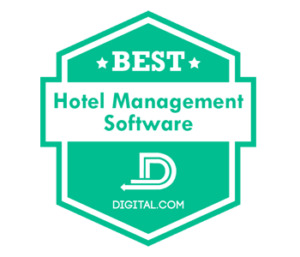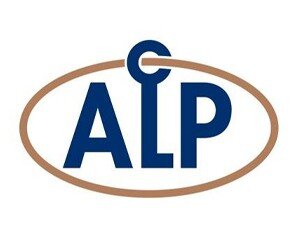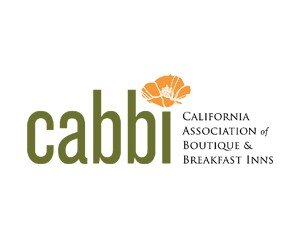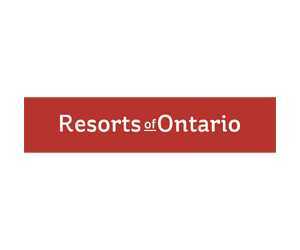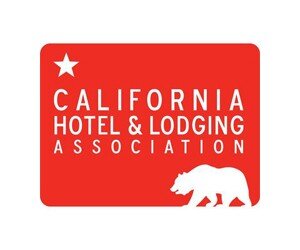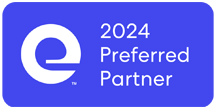The world’s preferred marketing and communication platform, the Internet is a boundless yet crowded space — everyone’s online. So how does a business stand out against the noise? A hotel’s online strategy is more important than ever.
Online marketing tactics evolve with technology and the way the Internet is used. For Internet users today, the Internet is now much, much more than a giant encyclopedia and directory of the world — it’s also a user-defined space of interaction and participation spurred by social media. This vast web of user-generated content and experiences is a powerful influence, shaping users’ purchasing decisions and steering marketing efforts toward more engaging and authentic content.
For an online marketing plan that will keep your independent hotel from getting lost in cyberspace, keep these pointers in mind…
The Website Experience
Your website is arguably your most important marketing tool, so make sure it’s sharp. A website that looks great, conveys the stay experience and is easy to use is more likely to generate an emotional connection that hooks visitors in.
Website Design: With the huge variety of free website themes available through content management systems like WordPress, Joomla and Drupal, there’s really no excuse for any business not to have a modern, professional website. In fact, so many properties do have beautiful websites nowadays that you have to go beyond nice design to stand out.
Images are key to building an emotional connection with visitors online. Large hero images are particularly eye catching and should be of high quality (composition, lighting and resolution). Photos should be a true and current representation of the property in its best light and illustrate the property’s personality and stay experience.
Videos, too, are excellent at getting attention and the most effective way of establishing an emotional connection. Watching a property’s video brings website visitors as close to the real experience as possible. Read our best practices for online hotel videos for some helpful tips.
For other website design tips, read our post about current design trends for hospitality websites.
Website Copy: The right approach to written content is another important way a website can stand above the rest. Don’t just settle for generic descriptions of amenities and services; while amenities and services are important of course, what sets hotels apart today is their distinctive stay experiences.
So put some time and effort into telling your property’s “stay story” to inspire prospective guests. Emphasize your USPs (unique selling points), whether it be the awesome customer service, location, special activities or the outdoor hot tub enjoyed under the stars. Share your local expertise of nearby attractions, events and activities. Be informative and engaging, and keep content fresh and up-to-date — blogging is a great way to do this.
Website Usability: Website usability is an intrinsic part of website design. If your website isn’t user friendly it will stand out for all the wrong reasons; visitors will quickly become frustrated and leave. Make sure your website is quick to load, easy to navigate, features clear calls to action (e.g. a prominent “book now” button), works well on mobile devices (go for a responsive design) and offers easy online bookings.
Online Distribution
In order to get found online, you need to be visible where your customers are looking. While the ideal scenario is for travelers to discover your property’s website on the first page of search engine results, the reality is that it’s more likely for them to find a place to stay through an OTA like Booking.com or Expedia. Even so, this doesn’t necessarily mean customers will book through an OTA; after seeing a property’s OTA listing, travelers often seek out the property’s own website (this is called the billboard effect — and here are some tips on how to take advantage of it).
While OTA commissions are a pain point for many independent lodging operators, it’s important to be present on relevant OTAs (the ones your customers are using) to maximize exposure. Make sure your OTA listings offer complete property information with high-quality descriptions and photos and competitive rates to stand out. Get an advantage over competitors by integrating online distribution channels with your PMS for automatic (and therefore timelier) rate and inventory updates across channels.
Social Media & Reviews
Being a star on social media starts with identifying which networks are worthwhile for your property and committing to them. Instead of trying to be present on as many as possible (and therefore too busy to manage any of them well), choose one or two that are aligned with both your business strategy and customers. For example: wedding venues typically find success on Pinterest; busy business travelers like Twitter; Instagram and Snapchat are all the rage with millennials; and Facebook — well, almost everyone’s on Facebook.
Aside from banking on your charm, maximize engagement (likes, comments, shares, clicks) and reach through relevant posts — organic and paid — that are helpful, inspirational and fun to travelers. Posts with images or video drive higher engagement, so try to post more visual content to stand out. It’s also very important to respond and interact with customers online, whether they send you a tweet, comment on one of your posts, share a photo of themselves at your property, or leave a review. The more you engage with customers online, the more they’ll engage with you… and the more exposure your posts will get.
Employ real-time social media monitoring tools like Mention or Hootsuite to monitor the Internet for conversations about your property — from reviews to social mentions — to ensure you never miss the chance to respond as appropriate.
And when it comes to online reviews, the more the better. Property management systems such as WebRezPro integrate with automated guest relationship management software like Revinate and Guestfolio for sending guests post-stay surveys that can be submitted directly to TripAdvisor, increasing online review volume and popularity ranking. Provide reviews on your website too, so customers don’t have to leave your site to read them.
We’ve previously written tips for managing social media accounts and online reviews for independent lodging operators. Check those posts out for more details.
SEO & Website Analytics
Standing out online is somewhat synonymous with ranking well in search engine results. Search engine optimization (SEO) success depends on a holistic approach that includes all of the above (website design and content, mobile-friendliness, online distribution, social media engagement and online reviews) as well as traditional search-engine-friendly practices like accessible site structure, descriptive keywords, reputable inbound links, accurate and consistent local listings (Google My Business, BingPlaces), and paid search engine advertising. Getting your SEO strategies right is key to getting found online. Take a look at this SEO Checklist for Hoteliers for further guidance.
Because search engine algorithms change all the time, your website’s ranking on SERPs (search engine results pages) should be monitored regularly and strategies tweaked as needed. Your website’s performance should be monitored too. Google Analytics is commonly used to track website traffic, time on site, conversions and other metrics that help determine whether your site is getting noticed and giving customers what they want, or disappearing into cyberspace in urgent need of rescue.
In the increasingly competitive landscape of hospitality, standing out is a hearty challenge. Keeping up with the evolving Internet marketing trends and technology, identifying, promoting and celebrating your property’s distinctive attributes, and engaging in conversation with customers on social media are key strategies that will help your property shine online.












